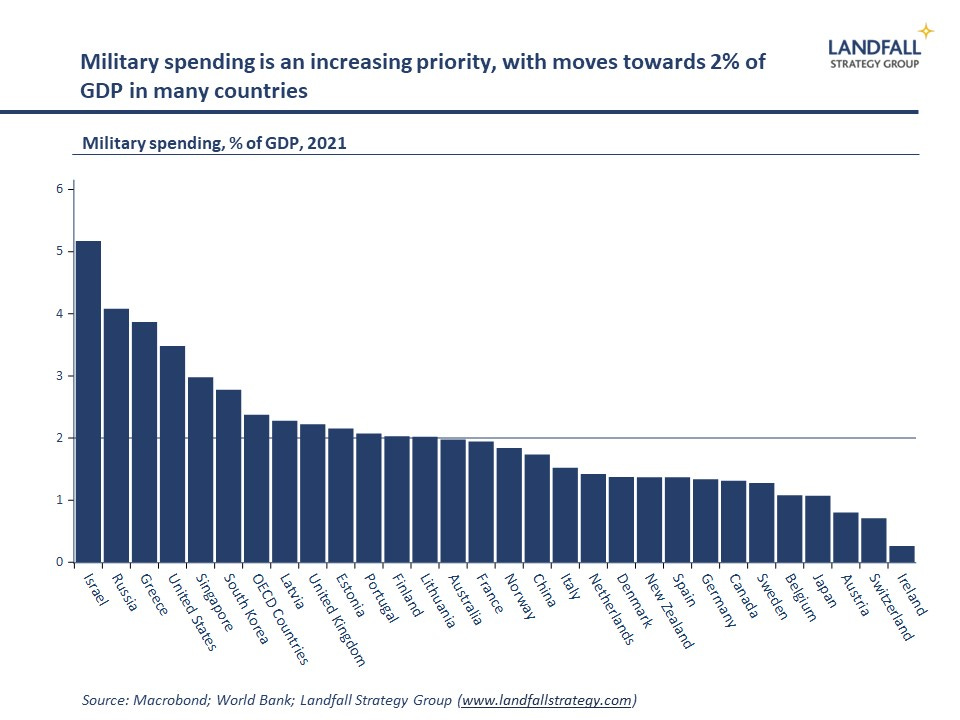Full spectrum strategic competition
Big power strategic competition is strengthening across military, technology, economic, & finance domains, powerfully reshaping the global economy
The growing strategic competition between the US/‘the West’ and China extends beyond military strategy, and is importantly about competition in economics, finance, and technology. Indeed, a similar logic is driving economic competition and military competition: there is both a conventional arms race and an industrial policy arms race.
The past couple of weeks have provided more evidence of the strengthening pace of this strategic competition.
Strengthening strategic competition
To start, strategic competition is motivating increased military spending. Data out on Monday reported a ~4% real increase in global military spending in 2022, rising to a record of USD2,240 billion (~2.2% of world GDP). The post-Cold War peace dividend is over.
This increase is partly due to Russia’s invasion of Ukraine, but also reflects increased core military spending in the US, China, and elsewhere. Looking forward, most NATO countries are committing to the 2% of GDP target, with some (Poland, Estonia) targeting higher levels. In Asia, Japan, South Korea, and Australia have committed to increased military spending (note Australia’s Defence Strategic Review released during the week). Much of this increased military spending will be undertaken in a coordinated manner, with partners or through alliances like NATO.
Advanced technology is central to this strategic competition: AI, semiconductors, quantum, and so on. Indeed, the second pillar of the AUKUS military arrangement is structured around international cooperation in key advanced technologies.
And because many advanced technologies are dual-use, they are subject to an increasing array of trade and investment restrictions. This is having an impact. Semiconductor machinery exports to China from the US, Japan, and the Netherlands are down by 16% to ~50%, on the back of US-led sanctions. And recent IMF research noted that FDI in strategic sectors was already being reshaped powerfully by geopolitics (discussed in my recent note).




